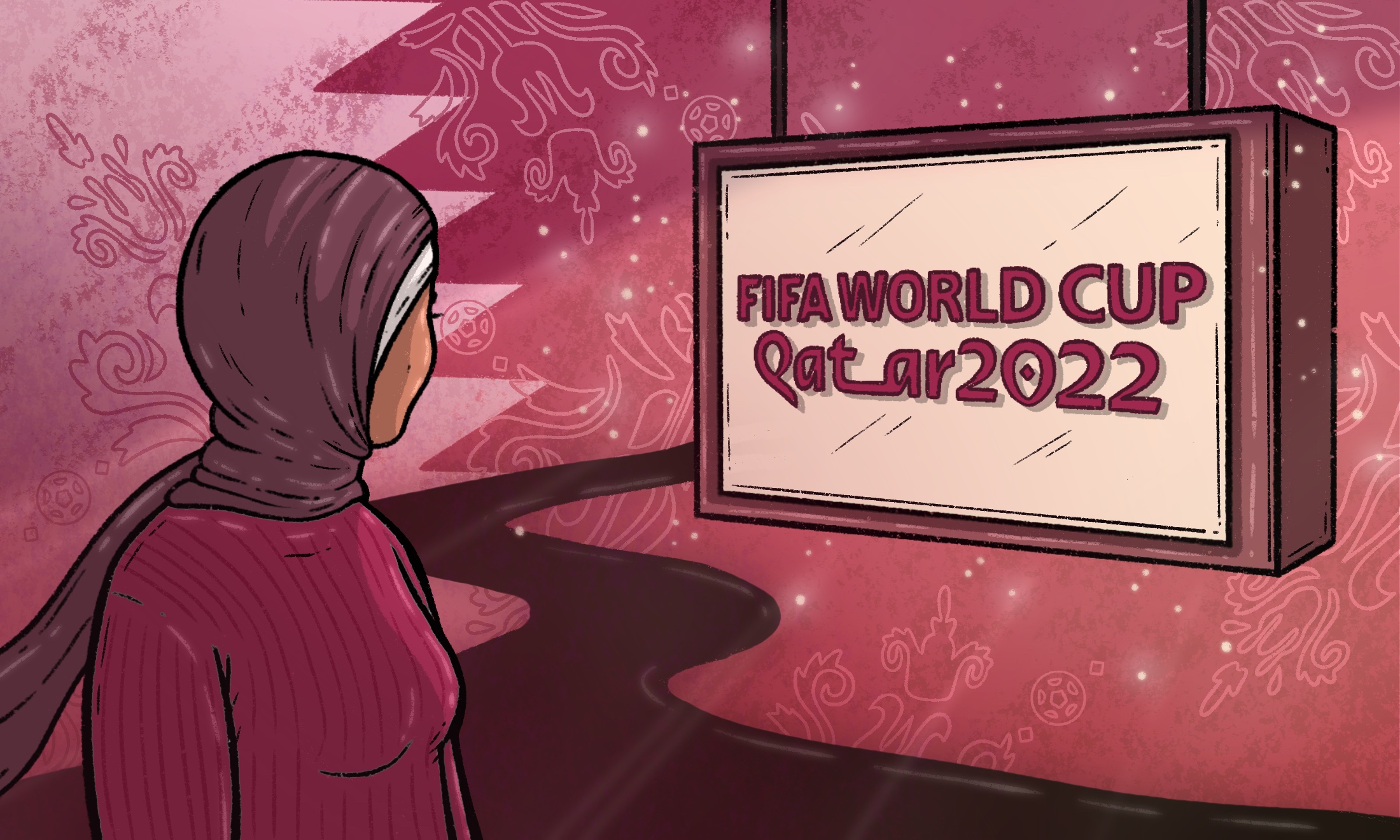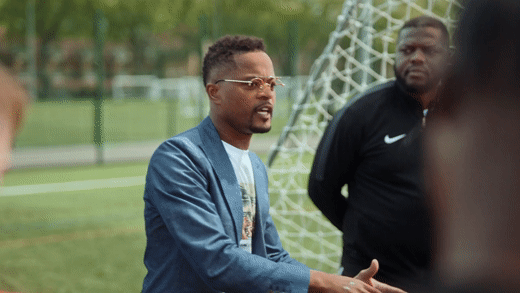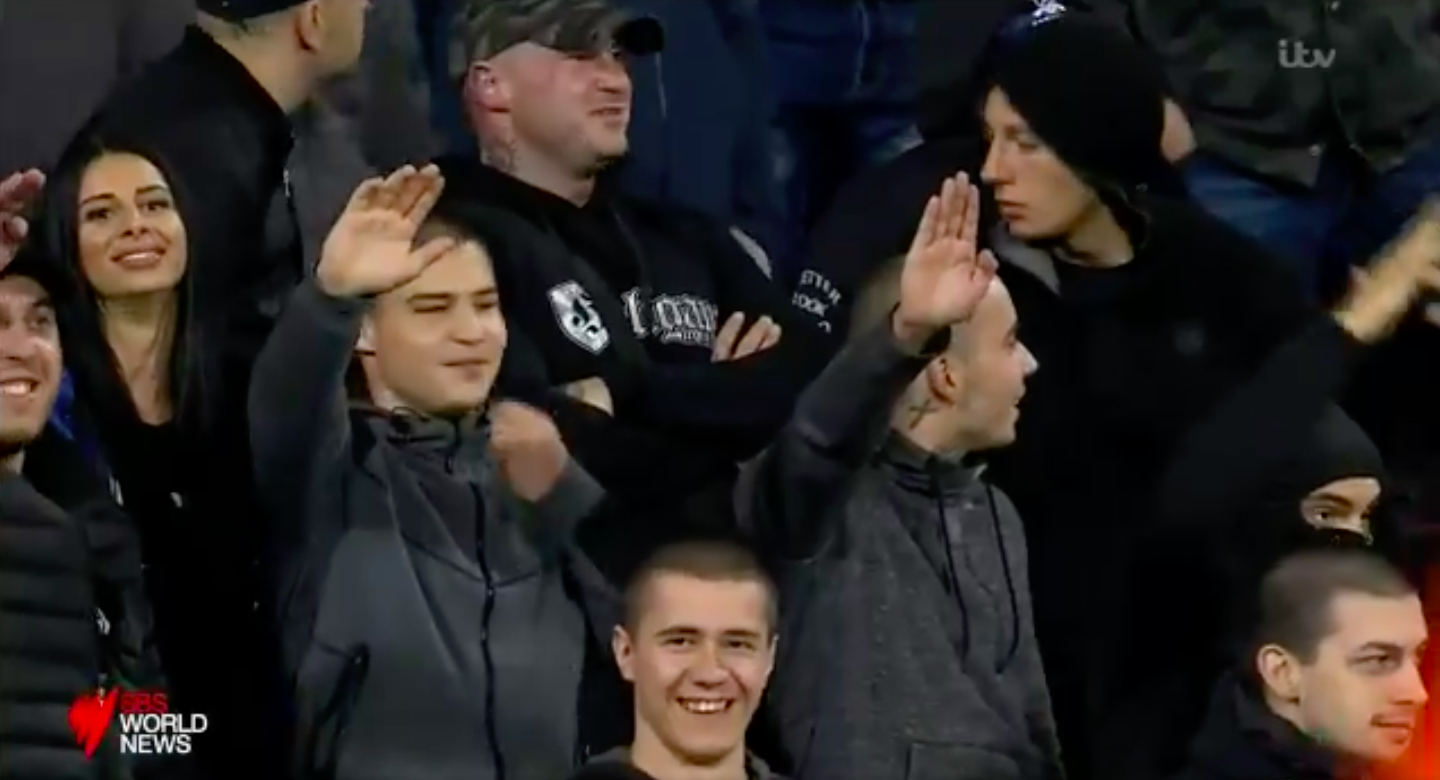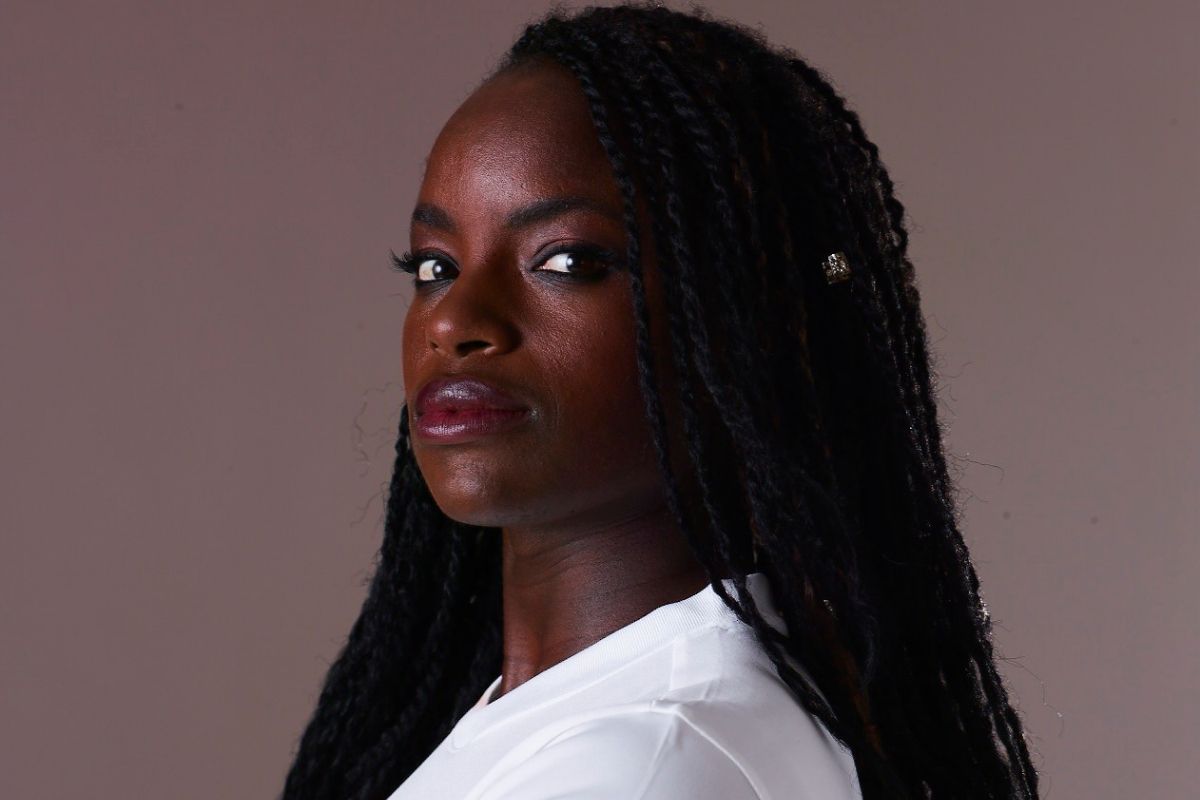
Courtesy of @SibsMUFC
The culture war is trying and failing to swallow England’s Euro 2020 achievements
In the wake of England’s Euros loss, we have to stop letting racists dominate the narrative.
Kemi Alemoru
13 Jul 2021
Sunday marked a historic day in English football history. The team took us to the Euro finals – the furthest the English men’s team has been in an international competition in mine and even my parent’s lifetimes. They may have lost the game after a tough penalty shootout against Italy, but there were so many proud and iconic moments.
Before the game, the streets were filled with revellers releasing thick red smoke from flares lodged deep in the bum hole of half-cut fans. Tiny todgers flapped in the wind, courtesy of nudists draped in the St George’s flag. It’s a symbol as white as the skin of most of those who dedicate their lives to shagging it, spliced by dividing, fiery red lines. The colour of burning rage. Apt – it’s sort of like the anger that follows large displays of nationalism as we reckon with the fact that this nation means very different things to different people. Though not everyone was going quite as hard in the build up to the game, the stakes were higher than ever before. In the end though, football tried, and failed to come home. So what is the story we take back instead of a trophy?
“This team stood, and still stands, for so much. They have a clear message of what they believe English football, and the country at large, should be“
It should be a heartwarming one. Gareth Southgate assembled a team of passionate, inspiring players. Dynamic Raheem Sterling grew up listening to the sound of the stadium and scored most of the goals for the team. Angelic Marcus Rashford has been influential in advocating for free school meals for British children during the pandemic as he knows what it’s like to go to bed hungry, a decision that inspired restaurants and cafes nationwide to start feeding low-income children off their own back, where the government refused to. Jaden Sancho, only 21 years-old, builds sports facilities for young people in his home borough. And surrounding these individual stories was a united team that stubbornly stuck by their choice to take a knee to resist racism, even when sections of their own ‘fans’ and government did not support them in their choice.
I, and so many other people, are so proud of these boys, of baby Bukayo Saka, of Jordan Henderson who says the team have to “keep fighting” for what’s “right” and (thicc calved) Jack Grealish who told fans he doesn’t want to hear them boo anti-racist gestures. I could go on. This team stood, and still stands, for so much. They have a clear message of what they believe English football, and the country at large, should be. Yet here we are again, unintentionally falling into the trap of letting racists be the loudest voice in this historic moment.
Racism exists. It is an indisputable fact that we are reckoning with on a daily basis and its impact on our communities is not to be diminished. On Sunday there were people of colour who weren’t just tense because of the game, but because of what losing the game, with this team in particular, might mean for their safety.
After the missed penalties, group chats, Twitter timelines and Instagram comments all joined in on the chorus from both sides of the coin. It was the black players. It was the black players. It was the black players. Screengrabs of tweets saying “n*ggers” lost this tournament, despite the fact black players like Raheem Sterling carried us further than the men’s team have been since we landed on the moon. A Snapchat post of a hate crime scorecard proposing a “day of violence”. Counter-posts of other black people saying “get home safe”, “leave pubs immediately”, and “pray for the mental health of Marcus Rashford, Bukayo Saka and Jadon Sancho”. Genuine reports of attacks converged with unverified – and possibly completely fabricated – rumour to heighten fears. We have entered a hellscape of regular public dehumanisation and excruciatingly demoralising ‘debate’ that extremists, politicians, and straight-up trolls wish to exploit by using these key moments to stoke tensions.
For nuance’s sake, it would be a shame for the positives of this tournament to collapse under the sheer weight of the culture war. Those boys deserve to be celebrated. They’ve managed to garner support from people like me – people who don’t normally watch football because of the intimidating hypermasculinity of the fandom, and also dislike nationalism. I was sat in a pub where Prince William was booed and the pre-game kneeling was cheered. It might feel minimal, but the work this team has done has made a difference.
“Racists know the power of these symbols and want to drag the conversation back into the gutter. They want headlines, amplification, fear”
We have to have an accurate perspective on this. Of course, we can’t deny the violent history of football hooliganism, especially when racial abuse of players was intensified during the 1970s and 1980s. Monkey chants, flying banana peels and brawls were part of the game’s culture. The so-called “firms”, the violent gangs affiliated with certain clubs, were responsible for the banning of English teams in European games after fights caused deaths, like the Heysel disaster. Over time this culture has dwindled in popularity and potency, resurfacing recently to mobilise to oppose Black Lives Matter protests and defend statues.
But there are more people who enjoy the game than the loose cannons who are always gagging for a scrap. Within minutes of the penalties, there were screenshots of the social media abuse that Saka was receiving, but by the time I looked on his Instagram page, it was flooded with a much stronger contingent of supporters pouring out love and adoration for the teen striker. The team representing inclusion is not something that has been missed by the far-right who were primed to oppose them (win or lose) but they were welcomed by people who don’t often feel included in sports. As writer Shon Faye put it: “To be sincere it has been nice to have a national team visibly support BLM and LGBTQ rights, hasn’t it?”
Yes, it has been. And racists know the power of these symbols and want to drag the conversation back into the gutter. They want headlines, amplification, fear. They want people to reshare their shocking posts to millions whether we’re condemning it or not. They want the floor. While I’m not advocating to completely ignore it, I feel like it is more useful to focus on the positives here.
It all comes back to the strength of narratives and how they take shape. Tory MPs like Lee Anderson boycotted the game from the start due to the “woke” team. The same Boris Johnson who not long ago tried and failed twice to ignore Marcus’ pleas to feed hungry children, and the same ghoulish Priti Patel who, just weeks ago, gave fans permission to boo these boys for taking the knee, were happy to capitalise on their successes. Naturally, the Tories have been playing blues clues as to the origins of the abuse the players receive today.
The far-right, social media giants and our morally bankrupt government are trained at harnessing rage and fear for their advantage when it suits them. They are quick to make sure the message of the team and their ethos and achievements are lost to the noise. But the tide seems to be turning as football pundits like Gary Neville and England players themselves hit back at the government for fanning the flames of the hate they receive. Even The Sun and the Daily Mail seem to be cos-playing anti-racism to fit the general public mood.
In the coming days, we will see more people denounce racism than peddle it. Many are already reporting and blocking vile posts, and are even sprinkling in a message to their employer about their online conduct (we see you Savills), but I won’t be amplifying any of their racism, taking them from having an audience of 10 to 1000s. As quickly as the Marcus Rashford mural in Manchester was defaced by a spineless stranger, crowds gathered to cover up the wall with messages of adoration. And while some would rather focus on the loss, there are many moments of exhilarating joy, of hope, of optimism, and comedy that will be the prevailing memory.
The England team deserved a win and so does their narrative. They showed grit and determination in the face of our historical sporting woes. A diverse team of men from humble beginnings (who are admittedly now obscenely rich). Racists cannot seize the narrative of this tournament when the team has already made it clear: it’s not their game anymore.









